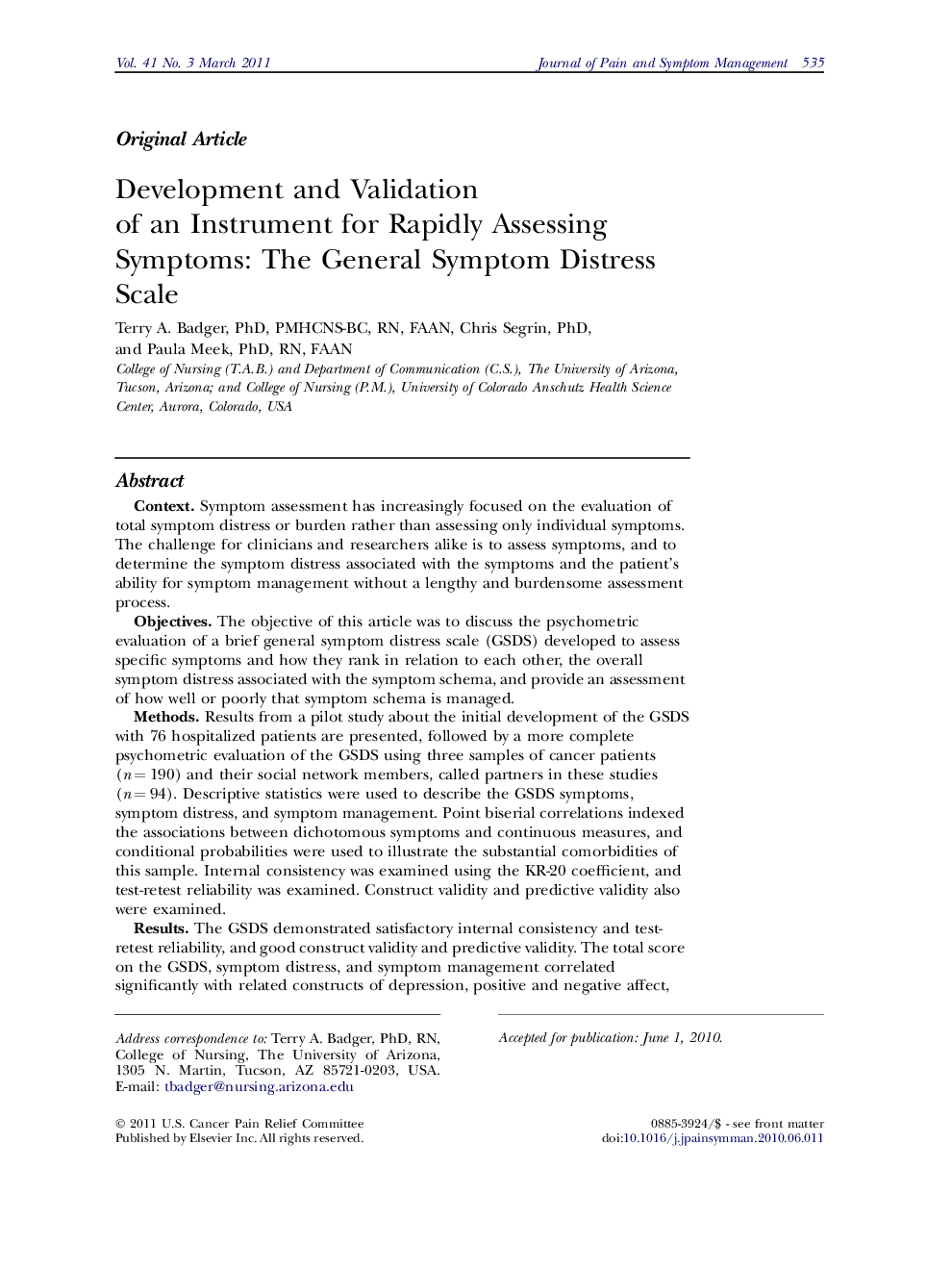| Article ID | Journal | Published Year | Pages | File Type |
|---|---|---|---|---|
| 2730259 | Journal of Pain and Symptom Management | 2011 | 14 Pages |
ContextSymptom assessment has increasingly focused on the evaluation of total symptom distress or burden rather than assessing only individual symptoms. The challenge for clinicians and researchers alike is to assess symptoms, and to determine the symptom distress associated with the symptoms and the patient’s ability for symptom management without a lengthy and burdensome assessment process.ObjectivesThe objective of this article was to discuss the psychometric evaluation of a brief general symptom distress scale (GSDS) developed to assess specific symptoms and how they rank in relation to each other, the overall symptom distress associated with the symptom schema, and provide an assessment of how well or poorly that symptom schema is managed.MethodsResults from a pilot study about the initial development of the GSDS with 76 hospitalized patients are presented, followed by a more complete psychometric evaluation of the GSDS using three samples of cancer patients (n = 190) and their social network members, called partners in these studies (n = 94). Descriptive statistics were used to describe the GSDS symptoms, symptom distress, and symptom management. Point biserial correlations indexed the associations between dichotomous symptoms and continuous measures, and conditional probabilities were used to illustrate the substantial comorbidities of this sample. Internal consistency was examined using the KR-20 coefficient, and test-retest reliability was examined. Construct validity and predictive validity also were examined.ResultsThe GSDS demonstrated satisfactory internal consistency and test-retest reliability, and good construct validity and predictive validity. The total score on the GSDS, symptom distress, and symptom management correlated significantly with related constructs of depression, positive and negative affect, and general health. The GSDS was able to demonstrate its ability to distinguish between those with or without chronic illness, and was able to significantly predict scores on criterion measures such as depression.ConclusionCollectively, these results suggest that the GSDS is a straightforward and useful instrument for rapidly assessing symptoms that can disrupt health-related quality of life.
